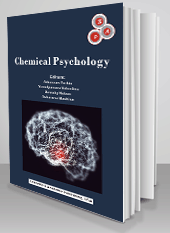Scientific & Academic Publishing
SAP is an open access publisher of journals covering a wide range of academic disciplines.
SAP is an open access publisher of journals covering a wide range of academic disciplines.

Description
The brain is the most complex and least studied organ of our body. Having a mass of only 1-2 kg, it consumes 20% of energy. More than 70% of genes of our genome actively work in its cells. The gray matter consists of more than 90 billion neurons, each of which has up to 10 thousand links with other neurons.
Scientists from the University of California have discovered a gene that is responsible for the human mind. In its essence, this is a variation of the HMGA2 gene. They studied the causes of genetic diseases of the brain. For the experiment, geneticists selected 20 volunteers who agreed to give their genetic material for research. They were representatives from different countries, who are on different continents.
The results of the experiment struck scientists, it turned out that people with a certain chemical structure of the HMGA2 gene, really are endowed with high mental abilities. But this is only if all other factors that determine the level of intelligence will be equal.
Each participant in the study had to undergo an IQ test, and the holders of the variational gene gave answers much better than those who do not have a similar gene. If to speak about an estimation of test results, on the average the given indicator has made about 1,5 points.
Based on the results of the experiment, scientists believe that this gene really can make a person much smarter. They note that the elementary changes in the genetic code can generate real geniuses.
At present, genetics are not going to stop there and plan to develop this direction. They hope that the results of their work will help create drugs to enhance the human mind.
The training manual describes the main groups of medicinal substances that affect the peripheral and central nervous system of man, their most important representatives, the main effects and neurochemical mechanisms of action are considered. Information on the effect of neurotropic substances on the psychosomatic status and behavior of a person is given, the features of the influence of psychotropic drugs on mental processes and states are analyzed: memory, attention, emotions, perception of the person, his work capacity. The analysis of the neurochemical basis of the regulation of the functional state of the brain is considered, the role of neurotransmitter systems in the pathogenesis of mental and nervous diseases.
The task before us was to find regularities between the chemical and mental processes in the brain.
The conducted researches led us to the discovery of a new field of science - chemical psychology.
In this book, we tried to give a basic knowledge of chemical psychology.
Table of Contents
I. Introduction to Neurosciences
II. The Concept of Brain Chemistry
III. The Chemical Psychology
IV. Chemistry of Hyper-Information
V. Chemisty of Hyper-Consciousness and Mental Processes
VI. Chemistry of Hyper-Behavior
VII. Chemistry of Sensations
VIII. Perception
IX. Representations
X. Memory
XI. Imagination
XII. Chemistry of Hyper-Thinking
XIII. Speech
XIV. Attention
XV. Will
XVI. Chemistry of Emotions and Feelings
XVII. Personality
XVIII. Abilities
XIX. Temperament
XX. Character
XXI. Meaning of Life
XXII. Synthesis of Oligonucleotides
XXIII. Chemistry of Organic Compounds of Phosphorous
XXIV. Chemistry of Herontology
Conclusions